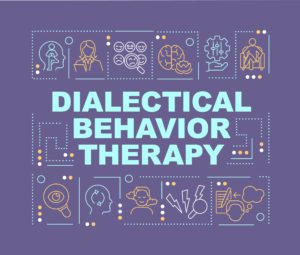The Importance of Adherence in Dialectical Behavior Therapy (DBT)
Written by: Brittany Glaser, M.A., M.Div.

What is DBT?
Dialectical Behavior Therapy (DBT) is an evidence-based treatment originally created to treat Borderline Personality Disorder (BPD). It has since been adapted to help adults, as well as adolescents and their families cope with dysregulated emotions and behaviors in combination with some of the following issues: impulsivity; depression; thoughts of suicide or self-injury; overwhelming emotions such as sadness, anxiety, or anger; struggles with identity or a constantly changing “sense of self”; and difficulty maintaining healthy relationships.
The Summit Counseling Center offers a full protocol DBT program, which includes individual counseling and skills classes for adults, adolescents and their families facilitated by Intensively Trained DBT Clinicians.
What is treatment adherent DBT?
Treatment adherent DBT is consistent with the methods and instruments created by Marsha Linehan, the founder of DBT. This means a program contains the four essential components of DBT:
1. Skills classes teaching mindfulness, emotion regulation, interpersonal effectiveness, and distress tolerance
2. Individual sessions given weekly (or two times a week) by a trained DBT therapist
3. 24/7 phone coaching on skills
4. Consultation team that meets weekly for the DBT therapists to consult and support all clients
Why is adherence important?
It can be confusing trying to differentiate between DBT programs and therapists. For some therapists, they offer DBT informed therapy and not full protocol or adherent DBT. What that means is that a DBT informed approach incorporates DBT tools but does not adhere to the evidence-based research and provides all the components above. For some, receiving DBT informed therapy might be what is needed. However, clients need to ask and make sure they are receiving what is recommended, especially if that clinical recommendation is fully adherent treatment.
Adherent therapy provides clients with a structured and evidence-based treatment that has been shown to improve clients’ emotions, quality of life, and relationships. In individual DBT sessions the clinician uses diary cards and behavior chains specifically designed to target problem behaviors and help clients integrate skills to meet their goals.
Since therapy adherence has been shown to increase treatment participation, decrease psychiatric hospitalizations, and decrease suicidal behaviors, the Summit Counseling Center strives to make sure our program is delivering as close to evidence-based treatment as possible.
If you have questions about DBT or think that this thearpy would be a good fit, please call our front office at 678-893-5300. They can schedule you an assessment with one of our DBT trained therapists. You can also find our group schedule here.
Resources:
Linehan, M. M., Schmidt, H., Dimeff, L. A., Craft, J. C., Kanter, J., Comtois, K. A. (1999). Dialectical behavior therapy for patients with borderline personality disorder and drug-dependence. The American Journal on Addictions, 8(4), 279-292. https://doi.org/10.1080/105504999305686
Harned, M. S., Korslund, K. E., & Linehan, M. M. (2014). A pilot randomized controlled trial of Dialectical Behavior Therapy with and without the Dialectical Behavior Therapy Prolonged Exposure protocol for suicidal and self-injuring women with borderline personality disorder and PTSD. Behaviour Research and Therapy, 55, 7-17. https://doi.org/10.1016/j.brat.2014.01.008
Harned, M. S., Gallop, R. J., Schmidt, S. C., & Korslund, K. E. (2022). The temporal relationships between therapist adherence and patient outcomes in Dialectical Behavior Therapy. Journal of Consulting and Clinical Psychology, 90, https://doi.org/10.1037/ccp0000714.
